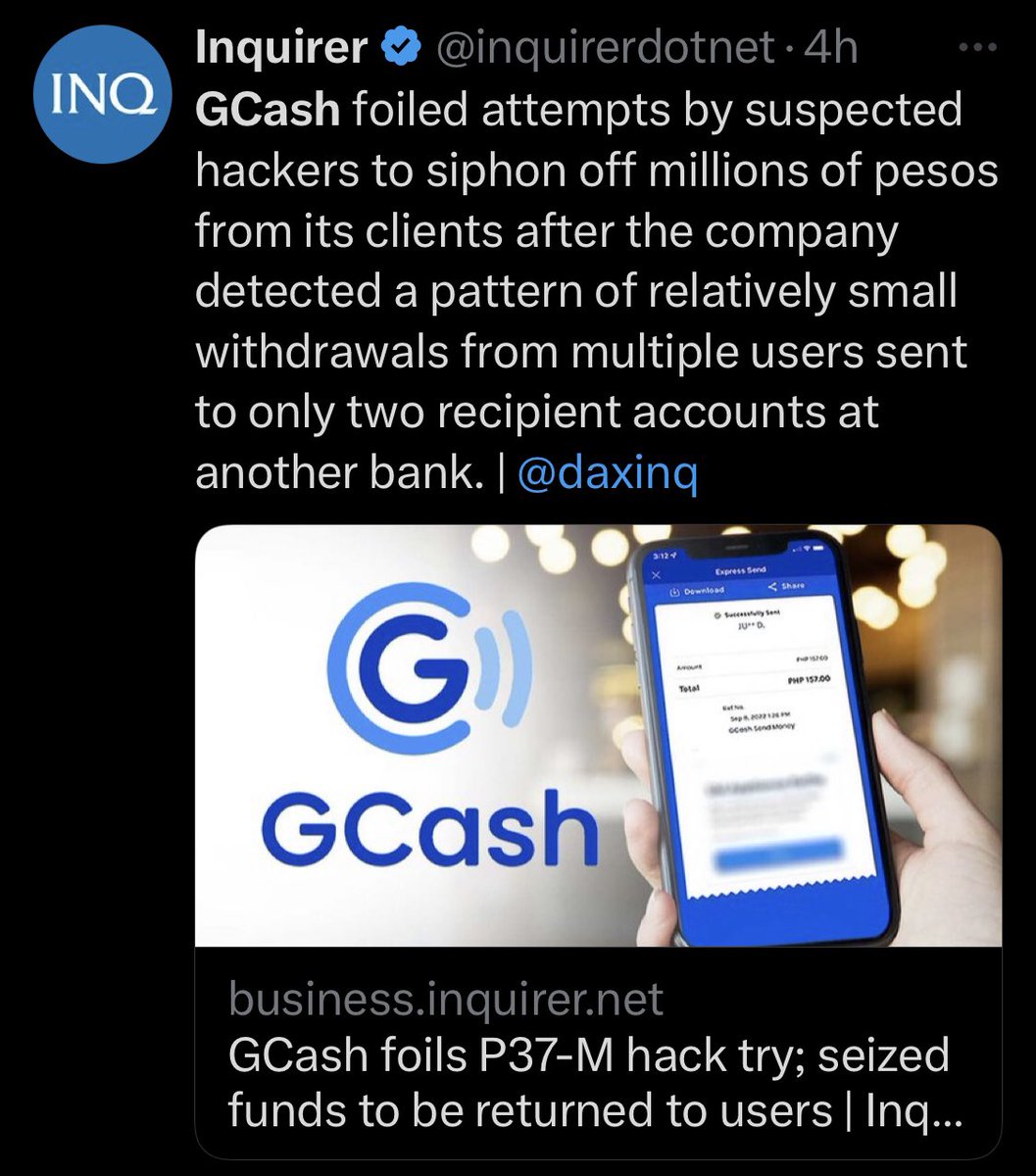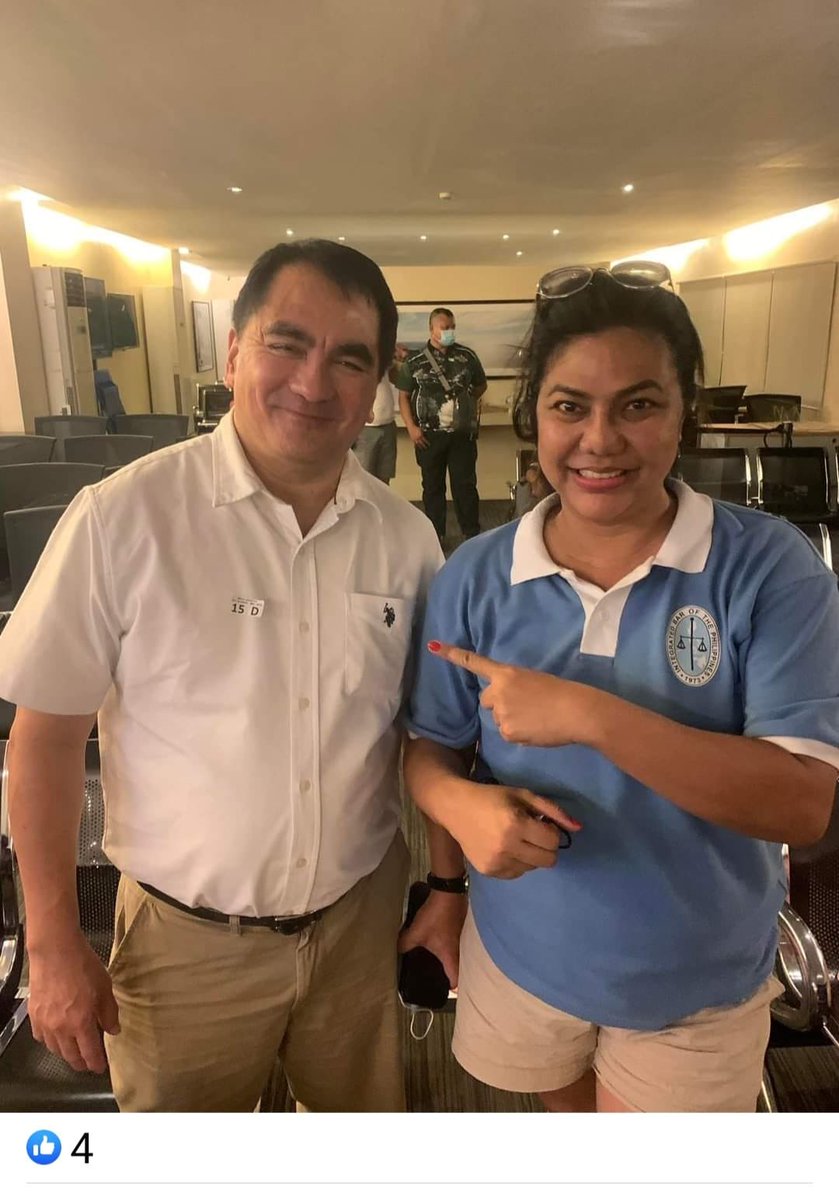WHO OWNS THE NAME ”EAT BULAGA”?
TAPE Inc. and GMA7 have already aired a new incarnation of #EatBulaga with new hosts such as Paolo Contis and without TVJ - Tito, Vic, and Joey.
On the other hand, TVJ argues that they own the name Eat Bulaga. Sino ang tama?
A thread 🧵


TAPE Inc. and GMA7 have already aired a new incarnation of #EatBulaga with new hosts such as Paolo Contis and without TVJ - Tito, Vic, and Joey.
On the other hand, TVJ argues that they own the name Eat Bulaga. Sino ang tama?
A thread 🧵



Unfortunately for TVJ, TAPE Inc. is the owner of the trademark “EAT BULAGA.”
1. Under the Intellectual Property Office’s records, TAPE Inc. is the REGISTERED owner of the name Eat Bulaga and its abbreviation EB.
1. Under the Intellectual Property Office’s records, TAPE Inc. is the REGISTERED owner of the name Eat Bulaga and its abbreviation EB.
2. Ownership of a trademark under PH law belongs to the one that is the first-to-file for its registration.
Sec. 122 of the Intellectual Property Law says: “The rights in a mark shall be acquired through registration made validly in accordance with the provisions of this law.”
Sec. 122 of the Intellectual Property Law says: “The rights in a mark shall be acquired through registration made validly in accordance with the provisions of this law.”
Hence, since TAPE Inc. is the registered owner of the name Eat Bulaga since 2011, it is the one that can use the name to the exclusion of others.
If TVJ uses the name Eat Bulaga for their own show, they will be committing trademark infringement or an IP violation.
If TVJ uses the name Eat Bulaga for their own show, they will be committing trademark infringement or an IP violation.
3. But wait, si Joey De Leon @AngPoetNyo gumawa or bumuo ng name na Eat Bulaga nuong 1979. Pano yun?
Yes. But by allowing TAPE Inc. to register and claim ownership over the name, they will be considered to have consented to transferring the rights over the name. #WowMali
Yes. But by allowing TAPE Inc. to register and claim ownership over the name, they will be considered to have consented to transferring the rights over the name. #WowMali
TVJ did not oppose the registration since 2011. They had all the time and opportunity to do so but didn’t. They could have filed for registration under their personal names TVJ but they allowed TAPE Inc. to do so because it was the company that was running the show.
4. Tito Sotto is confusing the idea of COPYRIGHT and TRADEMARK. The name Eat Bulaga is a trademark, not a copyright.
Copyright ownership happens from the moment of creation and need not be registered. But for trademarks, ownership happens from moment of filing/registration.
Copyright ownership happens from the moment of creation and need not be registered. But for trademarks, ownership happens from moment of filing/registration.
5. More problematic for TVJ, TAPE Inc. also owns the trademark not just for the name Eat Bulaga but for most if not all the names of the segments or games performed during the show - Pinoy Henyo, Kalyeserye, etc.
This means that TVJ is not only prohibited from using Eat Bulaga as their show’s name but they are also prohibited from using segments like Pinoy Henyo.
Now of course there are exceptions to every law and TVJ may try to argue that they are the real and rightful owners
Now of course there are exceptions to every law and TVJ may try to argue that they are the real and rightful owners
But under the Intellectual Property Code and relevant Supreme Court decisions, the exceptions of registration in bad faith or fraud does not seem to apply in the case of TAPE Inc. and TVJ.
TVJ was happy for TAPE Inc. to own the rights. When Tony Tuviera was in charge of TAPE.
TVJ was happy for TAPE Inc. to own the rights. When Tony Tuviera was in charge of TAPE.
The problem is, like most other celebrities or big people who poorly plan their legal rights, Tony Tuviera is only a minority owner of TAPE.
Worse, TVJ didn’t even bother to be owners of the company that was running and owning their show.
Worse, TVJ didn’t even bother to be owners of the company that was running and owning their show.
So the crucial lessons here are:
1. Ownership of a trademark is based on first-to-file and registration with the IP Office.
2. Consult lawyers and make sure your rights and legal responsibilities are all in order. For rich or big people, corporate planning is a must.
1. Ownership of a trademark is based on first-to-file and registration with the IP Office.
2. Consult lawyers and make sure your rights and legal responsibilities are all in order. For rich or big people, corporate planning is a must.
3. Never fight a legal battle you don’t have aces or winning cards/hand. If you don’t have the rights, change strategy and adjust.
I do not support TAPE Inc. and I hate the Jalosjos but unfortunately, they outmaneuvered TVJ and the rest of the Eat Bulaga hosts/staff. #WowMali
I do not support TAPE Inc. and I hate the Jalosjos but unfortunately, they outmaneuvered TVJ and the rest of the Eat Bulaga hosts/staff. #WowMali
• • •
Missing some Tweet in this thread? You can try to
force a refresh

 Read on Twitter
Read on Twitter








